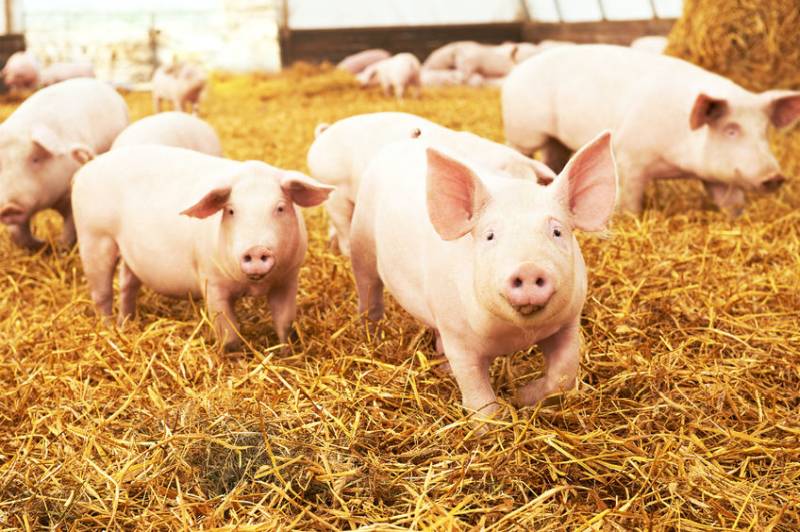
Thousands of pigs have been culled on farms across the country as a result of slaughterhouse and butchery worker shortages linked to Brexit and the pandemic.
The National Pig Association (NPA) says 6,000 pigs have so far been culled and destroyed, with thousands more expected to be euthanised.
The trade body's policy services officer, Lizzie Wilson told Sky News that the pigs had been "shot and taken away for rendering."
"The carcasses will be incinerated and sadly won't be used for human consumption, they are literally wasted," she said.
Producers have been warning the government for several weeks that the labour crisis had led to a chronic backlog of pigs on farms.
A shortage of butchers and slaughterhouse workers means processing plants are refusing to accept pigs destined for the food chain.
Abattoirs have had to reduce their throughput by about 25 percent over the last 11 weeks, according to the NPA.
Ms Wilson warned that thousands more pigs may have to be culled: "The longer we continue without a solution…the more likely we will see more culling on farms because people are getting increasingly desperate."
Despite the widespread cull, the trade body said there had been a 'positive change' within government in terms of its response to the crisis, as the Cabinet Office is now directly involved in the matter.
On Monday (11 October), the NPA and pork processors held a meeting with former Tesco boss Sir Dave Lewis, who has been appointed by government to address the issues across the supply chain.
“There is definitely change occurring,” NPA chief executive Zoe Davies told BBC Radio 4’s Farming Today programme earlier this week.
She said this was down to a multitude of impacts, including last week’s pig industry demonstration at the Conservative Party Conference and the mainstream media's coverage of the plight.
“It got to the point where we sent some images to various ministers to prove that pigs were reaching an overstocking situation on farm and that’s what triggered a small number of farms to start having to cull animals.
"After that, everything changed and for the first time ever, we had someone from the Cabinet Office in one of our regular Defra meetings,” Ms Davies said.
The NPA, along with numerous other farming industry groups, are calling for a new 12-month Covid-19 recovery visa to help alleviate the workforce shortages.
